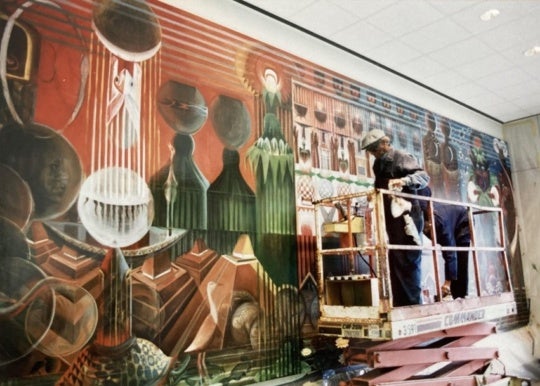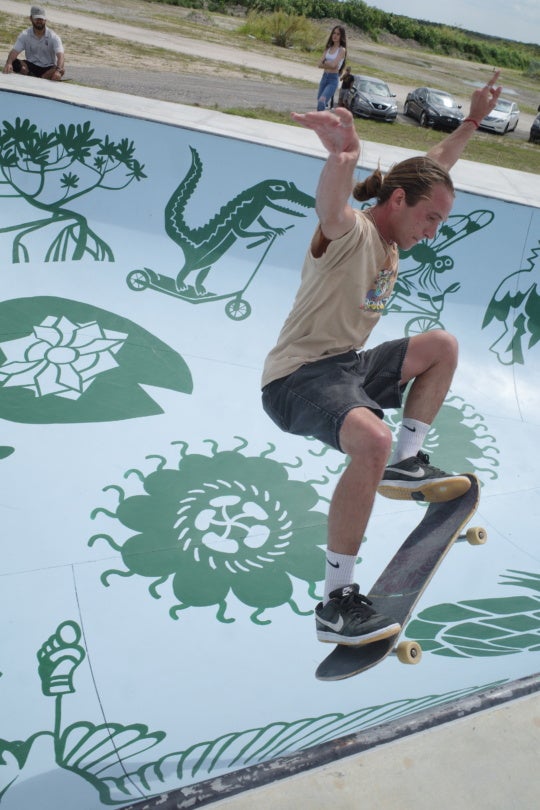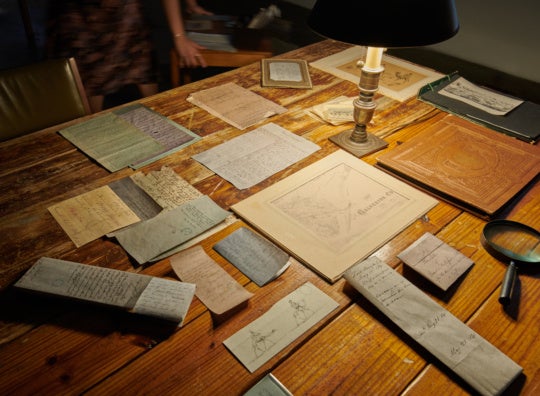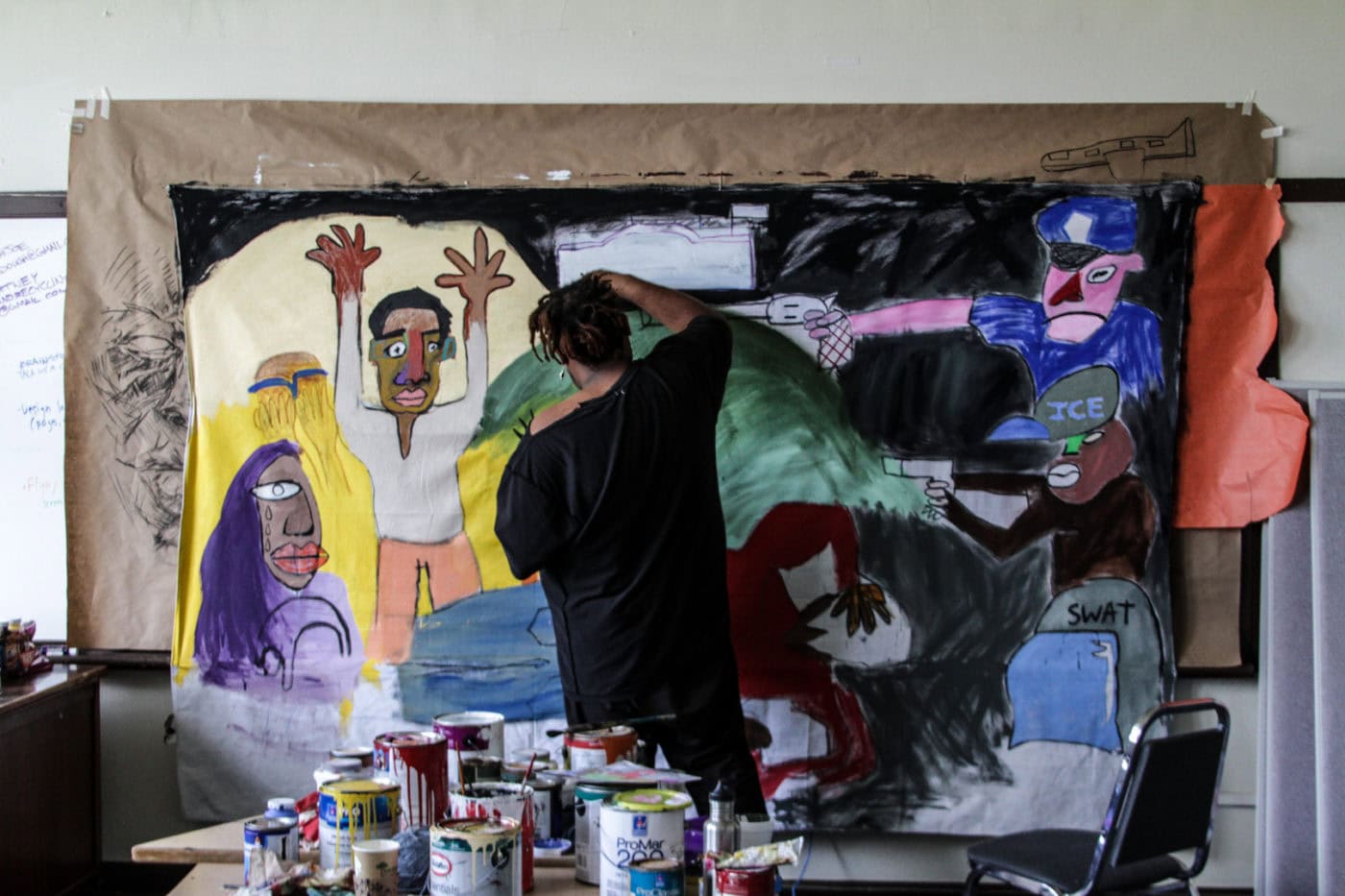
Artist Marlos E’van moved to Nashville, Tennessee, from outside of Biloxi, Mississippi, in 2010 and graduated from Watkins College of Art in 2016. Since completing his degree, E’van has garnered attention within and beyond his adopted home for his vibrant and subversive works in mediums including painting, sculpture, performance, and film. Works by E’van were recently included in Greetings from Nashville, a group exhibition at the Duke Hall Gallery of Fine Art at James Madison University in Harrisonburg, Virginia. That exhibition, which closed late last month, also featured works by Nashville artists Jodi Hays, Matt Christy, Molly Barnes, and Armon Means.
I recently visited E’van’s studio, which is located in a spacious classroom in a former school building that is now the home of the McGruder Family Resource Center in Nashville. Among several recurring themes including gentrification, gun violence, and fast food, E’van’s works frequently address questions of national identity and patriotism. We began by discussing the artist’s flag-inspired works, a selection of which were included in Greetings from Nashville. Our conversation took place in person in February 2019 and has been edited for print.
Joe Nolan: Your flags are bold, wildly painted renditions of the American and Mississippi state flags, and you’ve paired them with sculptures such as one showing a disembodied fist firing a pistol (Tha Gun #1, rendered in un-fired clay). Your installations remind me of altars, and you activate gallery spaces with symbols of patriotism and violence, but I don’t get the sense that it’s just for shock.
Marlos E’van: When I was twelve years old, my dad put a pistol in my face. The sister of one of my best friends in Mississippi shot and killed him over twenty dollars’ worth of crack. This shit is very much real for me.
JN: You’re committed to the use of found materials and substrates such as plywood panels, salvaged wooden doors, and found fabrics. For me, your work’s sculptural quality is one of its signatures.
ME: I really like finding shit. It’s a chance to take yourself out of capitalism. I don’t necessarily go to the art store to buy canvas. I source it. I found two rolls—a roll of linen and a roll of canvas—at a fucking yard sale. Fat rolls. That’s the type of shit I like to find, and that sale also benefits someone from the community.
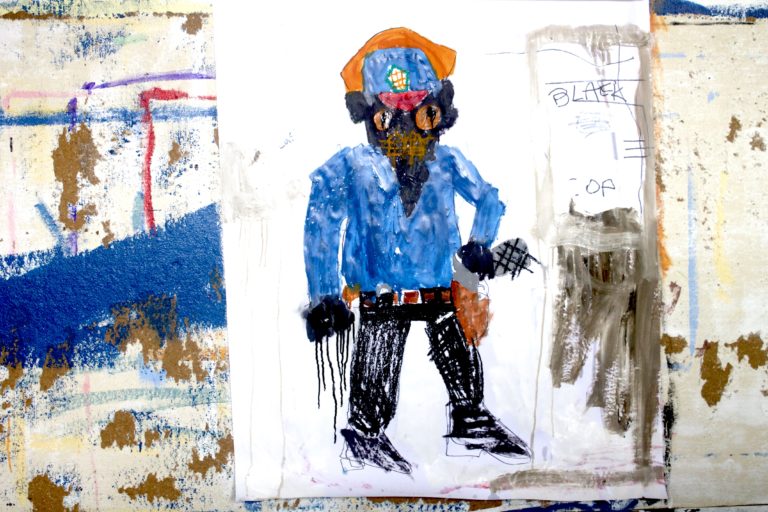
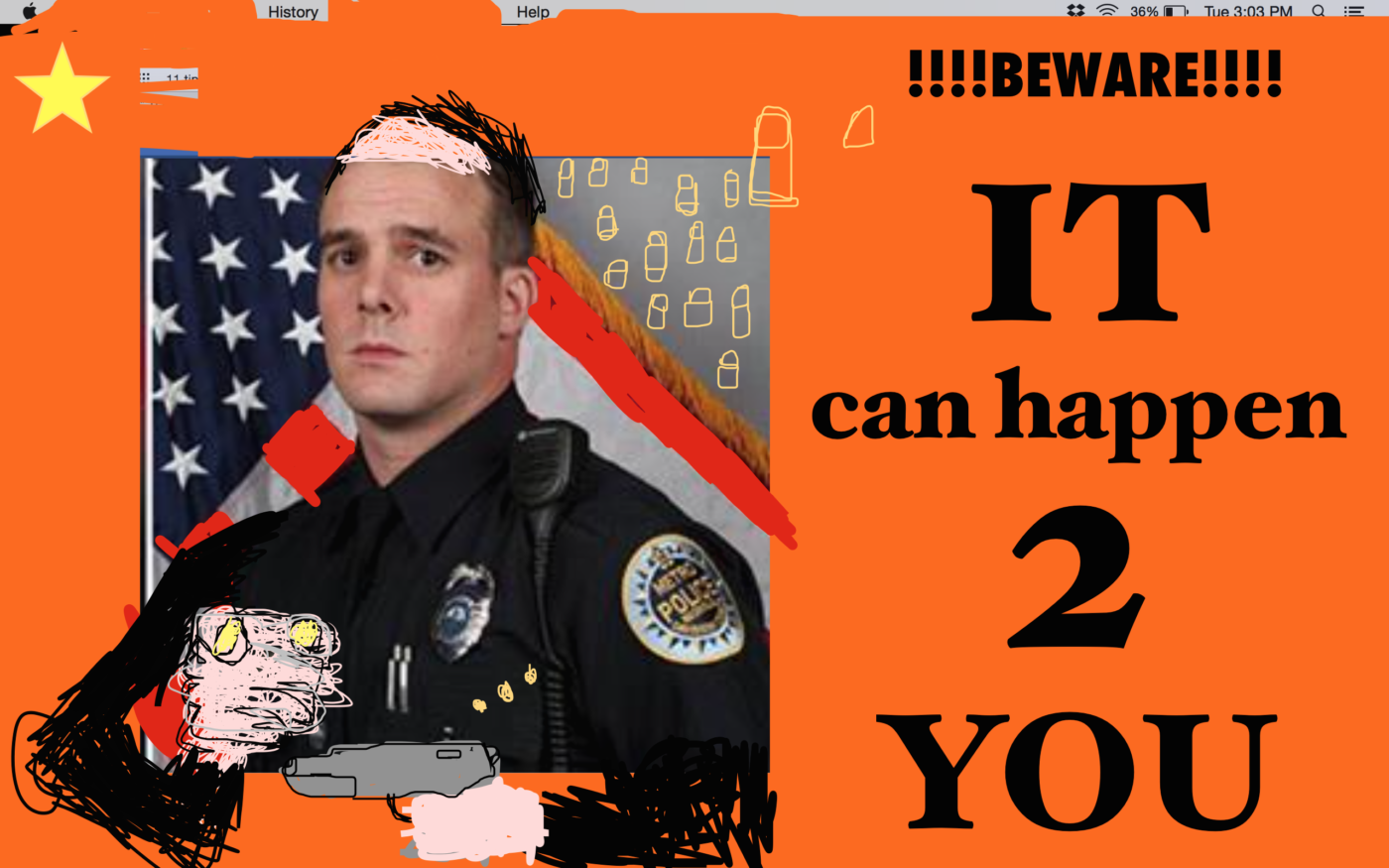
JN: Similarly to your installations, there’s a sense of ritual when you talk about urban gleaning.
ME: I like to walk around in alleys. A lot of times I have a can of spray paint or a fat-ass marker, and I find an old mattress, and I make a piece of art and I leave it. There’s a special connection to these items that have been used by somebody, that have meant something to somebody. It’s also just reusing something. In my work that comes from growing up in Mississippi around farms. When you have to rebuild a barbed wire fence to keep the cows or the hogs in, you don’t necessarily go out and buy two-by-fours. When tree branches fall in the wind, you cut that up and use that shit to build a new fence pole.
JN: You’ve done improvised street art, community-based projects, and institutional exhibitions including the show at James Madison, but you’ve also worked as a performance artist and a filmmaker.
ME: I’ve been hardcore doing movies the last five years. My first film is called Northern Gardens. I shot it in North Nashville, and it’s about life during gentrification. I took a person from the community, Miss Rita, and she’s kind of like the star of the film. She’s been living in her house in North Nashville without power for three years. It’s a fifty-three minute film where we created a narrative using her stories. But then we go out into Nashville and drive around, and there’s an original soundtrack. The film looks back to Italian neorealism using what’s around me. I’m very much inspired by those filmmakers.
JN: Perhaps your most infamous work about American violence is the book you created and published with David King’s Nashville-based Extended Play Press last year, Skull Microwave. Let’s talk a bit about when King and Nashville artist Jaime Raybin were stopped by TSA at LaGuardia Airport on their way back to Nashville after last fall’s Independent Book Fair in Williamsburg. According to the story Hyperallergic ran, their luggage was searched, and once agents found Skull Microwave, they damaged the book, interrogated and intimidated King and Raybin, and suspected your art to be terrorist propaganda.
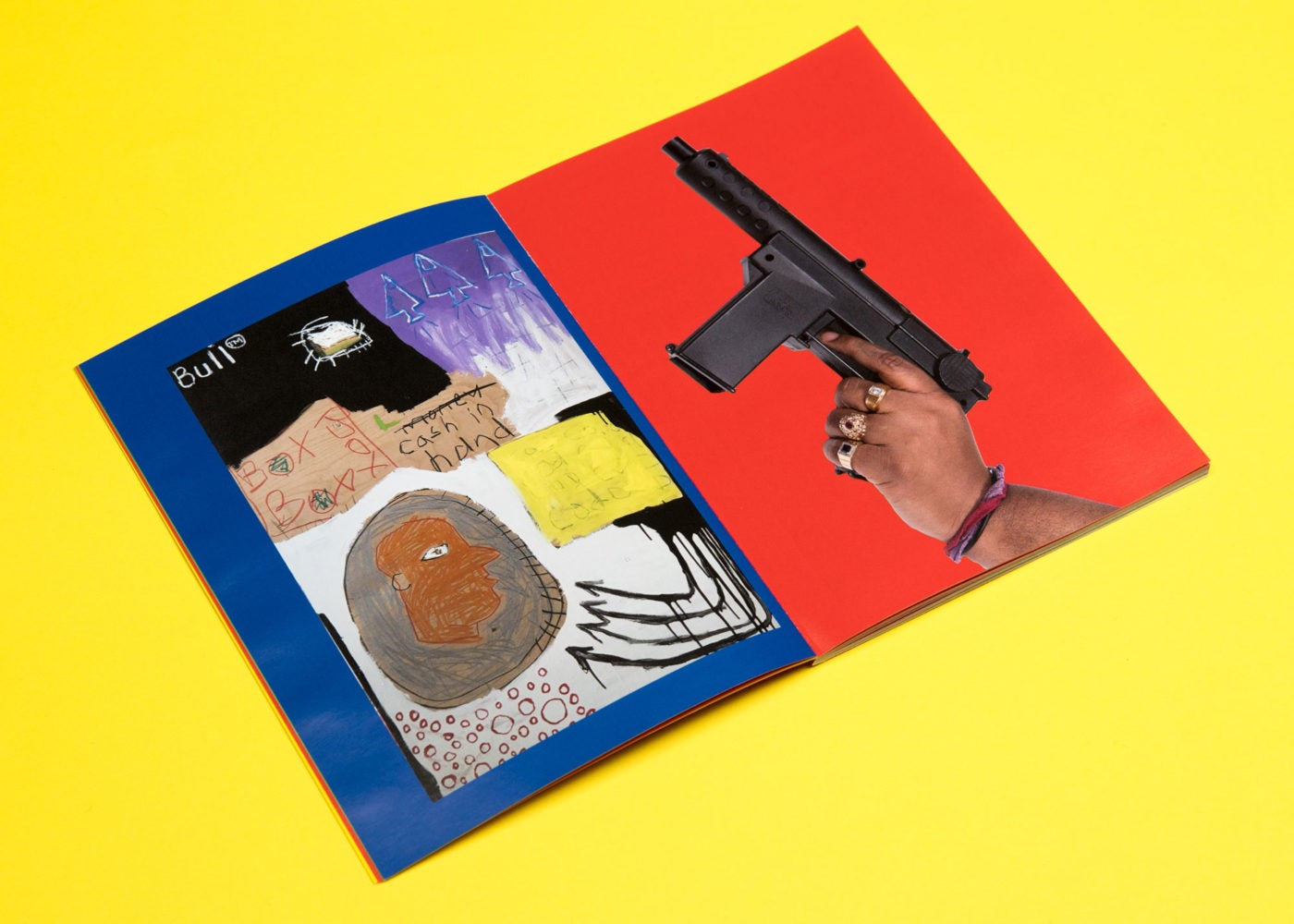
ME: That was a bad time. I can’t lie. When David texted me, I was like “Who’s even texting me right now?” I was paranoid as a motherfucker. Skull Microwave is a way of life. It’s like we’re living in Robocop times. I enjoy the absurdities. Everything is pretty much fucked, and, in the media, everything is crazy colors, and your mind is being fried by so many images that you become a zombie. That’s what Skull Microwave is. But it also addresses war-for-profit. I don’t just talk about gun violence from cops. Skull Microwave isn’t anti-government—it’s anti-war-machine.
JN: That whole incident was a sobering reminder that America is still very much committed to its delusional war on terror. But it was also an affirmation that art can still upset and affect people, or inspire them.
ME: Ultimately, I felt great. I was paranoid as hell and thinking, “Who is this dude in this van over here?” But, at the same time, I felt like I was playing my part. I felt like that was something getting done. David and I felt like we were making something powerful when we put the book together, so it felt good to know that, one way or another, that book moved somebody, and we were right. We made something that needed to be made.
Marlos E’van is an artist living and working in Nashville. His book Skull Microwave is available from Extended Play Press.

